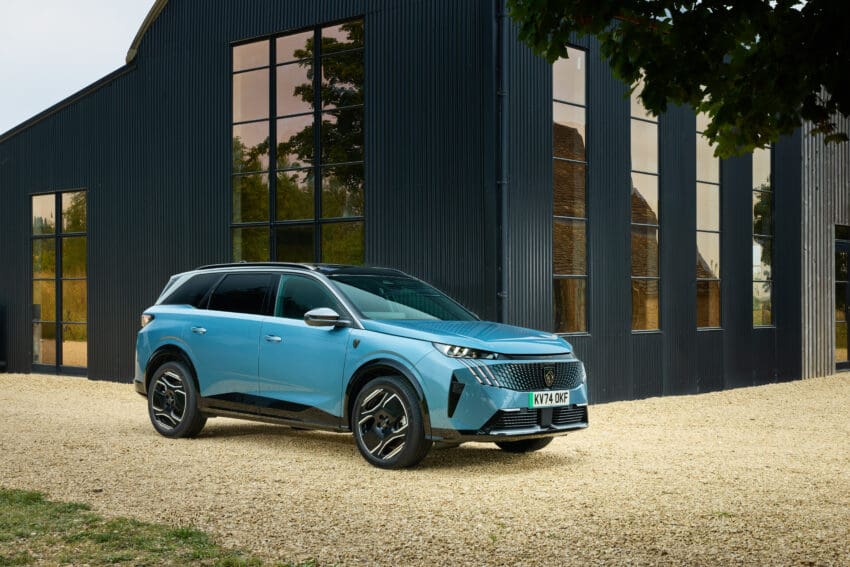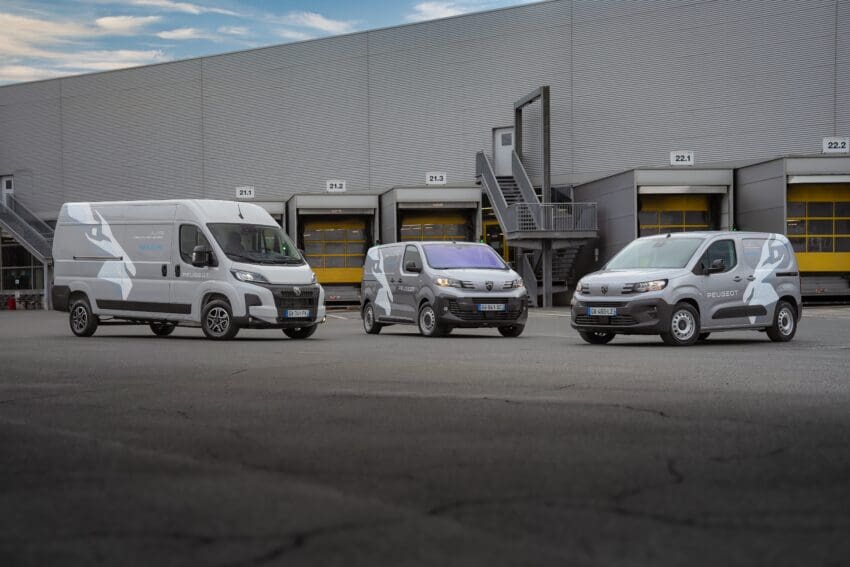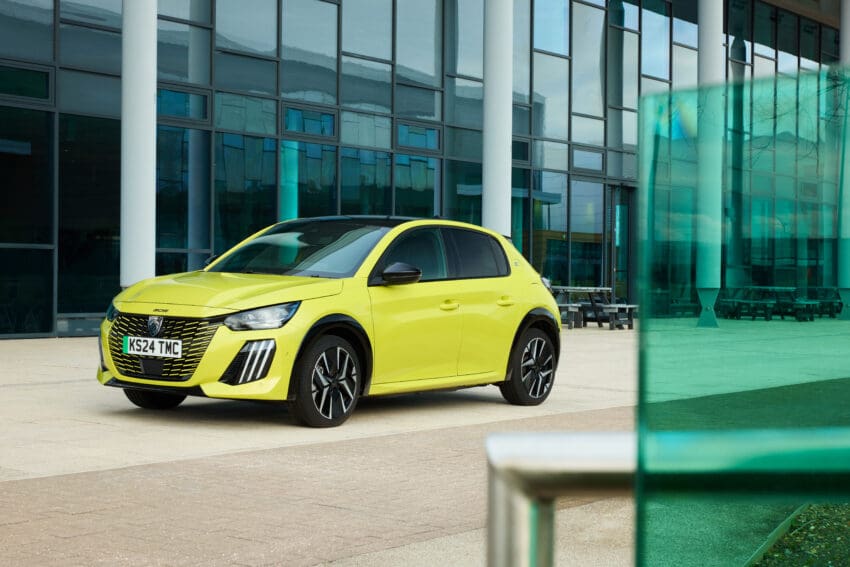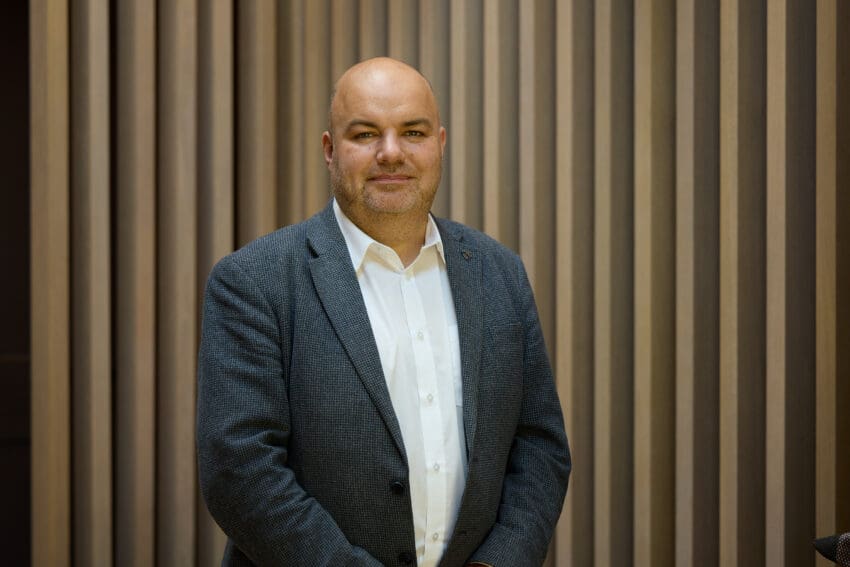Peugeot boss: We don’t want rollback on ZEV mandate or 2030 ICE ban
We hear from Peugeot MD Eurig Druce on why he’s relishing the race to an all-electric future, why he’s against any new plug-in car grant, and whether we’ll ever see an electric 108
EVP Powered:
We’re speaking at the launch of the new Peugeot E-5008, so can you fill us in on where Peugeot is sitting in terms of the EV landscape, its EV lineup, and how it is positioned in the face of pending legislation like the ZEV mandate?
Eurig Druce: I think Peugeot is positioned really strongly in the current market. We have the widest range of electric vehicles of any mainstream brand in Europe. As we launch the final piece of the jigsaw in the final quarter this year, which will be electric 408, we will then have nine electric cars in our range on offer, ranging from the smallest car in electric 208, all the way up to electric Traveller, which has up to nine seats and everything in between, from small SUVs to medium-sized SUVs.
Of course, today we’re talking specifically about the E-5008 which is our latest offering with seven seats and over 400 miles of range. So from that proposition, we have a really strong range, not only in terms of the breadth of products that we offer, but also in terms of the distance that we can travel. At 415 miles for the E-5008 and 435 miles for the E-3008, we are industry leading in terms of distances that can be travelled in the vehicle. And of course, we’re almost now where we would be in a traditional petrol car as well. So range anxiety is a thing of the past.

EVP: So from a product point of view, you think Peugeot is in a very strong position. You mentioned that the brand is currently at 28% EV sales mix for 2024, so are you confident Peugeot will hit the ZEV mandate requirements?
ED: Yes, we will be fully compliant. We are at 28% BEV mix in July and August and will maintain that to the end of the year. And that is just passenger cars. With vans, it’s even higher. And we’re doing it the right way, without limiting ICE vehicles. We’re doing it with rising sales of BEV while also growing our market share, whereas, we’re generally seeing brands heading towards compliance with declining market share. So I’m confident.
I’m pro- the transition. There’s a commitment in from the government, from European governments to reduce the level of CO2 globally to try to stop the worst impacts of global warming.
I think it’s our responsibility as a business then to buy into that process and to make that transition. And so as Peugeot, we’ve invested into the right products. I told you already about the nine that we have now active in the marketplace. And so yes, we will be compliant and we don’t want to see any rollback of any legislation.
We want the race to begin now and for us to succeed within that race, hopefully because we have the right product offering, not only the product, because I think the important secondary factor is that you have to deliver the right customer experience. So you have the right product choice. You have the right range. And then you have the right customer experience as well.
EVP: So you don’t want to see any softening on the ZEV mandate? Do you think it’s now just up to manufacturers to effectively get their acts together and work to achieve that?
ED: The position’s been there for a number of years now, we’ve understood that. I think I would ask, if I had a request, for alignment between the ban on ICE vehicles to match the ZEV mandate. And I would be in favour of pulling that forward to 2030, which I think is in the offing and possibly going to happen here in the UK at least.
At least then two parts of legislation are in a matching sync in terms of timing. But we want to see no rollback of the transition. The electric vehicle is the future. Peugeot has a really bright future in that market, we take more share in that future market than we do in the legacy market, and I want Peugeot to be seen as a future brand.
EVP: So, from a manufacturer clarity point of view, having the mandate and the ICE ban aligned is the way forward?
ED: Absolutely. What we need as manufacturers is stability. And we have to understand from a political world, we can change policies within six months, depending on what we believe might be popular. But industrial wise, you cannot change product cycles, and you cannot change designs and plans for the future, and make the right investments that are required for these products if we flip flop in terms of policy.
So consistency of policy is the most important thing. I’m happy with the transition. We want to take full advantage of the fact we’ve invested heavily already.

EVP: On the subject of government legislation and involvement, we’ve been hearing a lot of calls recently for incentives or for the government to step in and do something to help drive the EV transition. Do we need that?
ED: I fiercely don’t believe that as a car manufacturer, it’s my responsibility to ask the government to increase the taxation burden on the UK public.
My role is to bring the right products, the right range, the right customer experience. I feel the government has a real strong responsibility to deliver the right level of legislation, to drive that transition, but to support in terms of infrastructure, to give people the confidence. For example, I would be in favour of having the same VAT on charging your car on the street as you can at home.
That kind of thing I’m in favour of, but I would not ask the government for any financial incentives to make the transition. I think that’s something that goes beyond what I could be asking for and puts more responsibility on and more burden on the taxpayers, which I’m not in a position to want to do.
EVP: From that point of view then, what must manufacturers do in order to help? Fleet sales and EV sales are going up still, but private sales are fairly stagnant. So what can manufacturers do to bring more private customers to EVs?
ED: I think we are not following that trend, and so if I look at Peugeot private sales, 20 percent of our private sales in the UK are battery electric vehicles already. We’re running at 28 percent electric mix in terms of July and August, and I know confidently, based on the order bank that we’ve taken from our customers, that we’ll be exceeding that in the final quarter of the year.
And I think there’s been an element of a slowdown in electric, and quite a lot of that has been fear in the marketplace, also uncertainty in terms of what legislation’s going to be. Is it 2030? Is it 2035? So clarity – 2030 is where it needs to be – and then have the right products to offer the customers, have the right customer experience to offer the customers, and then the right infrastructure and people will make the transition because an electric car is far superior to an ICE vehicle.

EVP: On the subject of product. You already have nine passenger vehicles and three LCVs, but 208 is the smallest car that you currently produce. With several of your Stellantis sister brands using the Smart Car platform to bring out smaller, more affordable cars, is something similar in the pipeline for Peugeot? Are we ever going to see an electric 108?
ED: Not in the foreseeable future. We’d never say never, of course, but for now, a 208 is a strong entry for us and covers more of the marketplace. The level of customer demand for a smaller vehicle than a 208 is pretty low.
If that changes, of course, then we as a manufacturer have to respond. I think what we’ve demonstrated by having a product in every segment that is electric, that we’re pretty good at reacting to what customers already want. And so if that demand changes, then we will apply ourselves to it.






